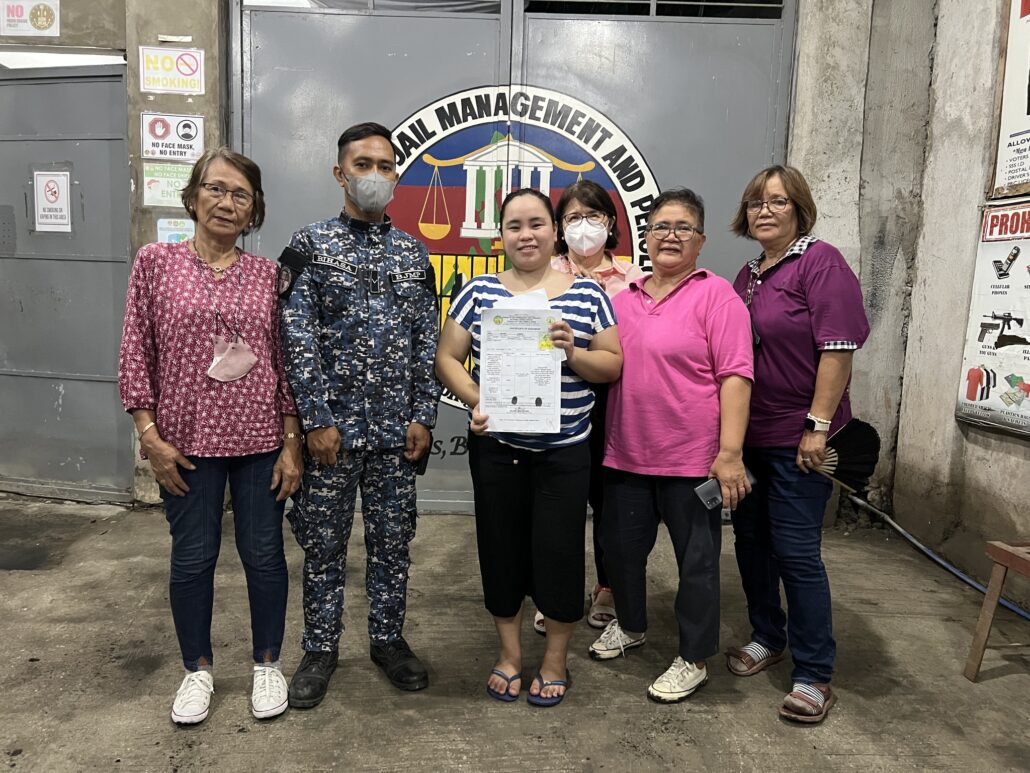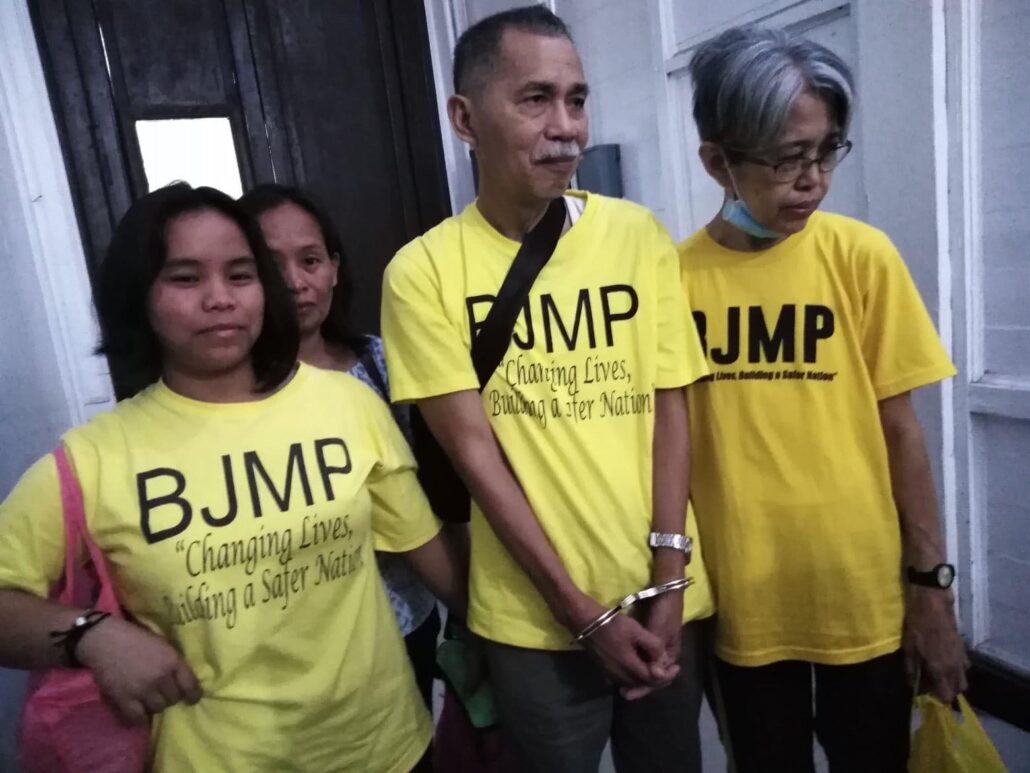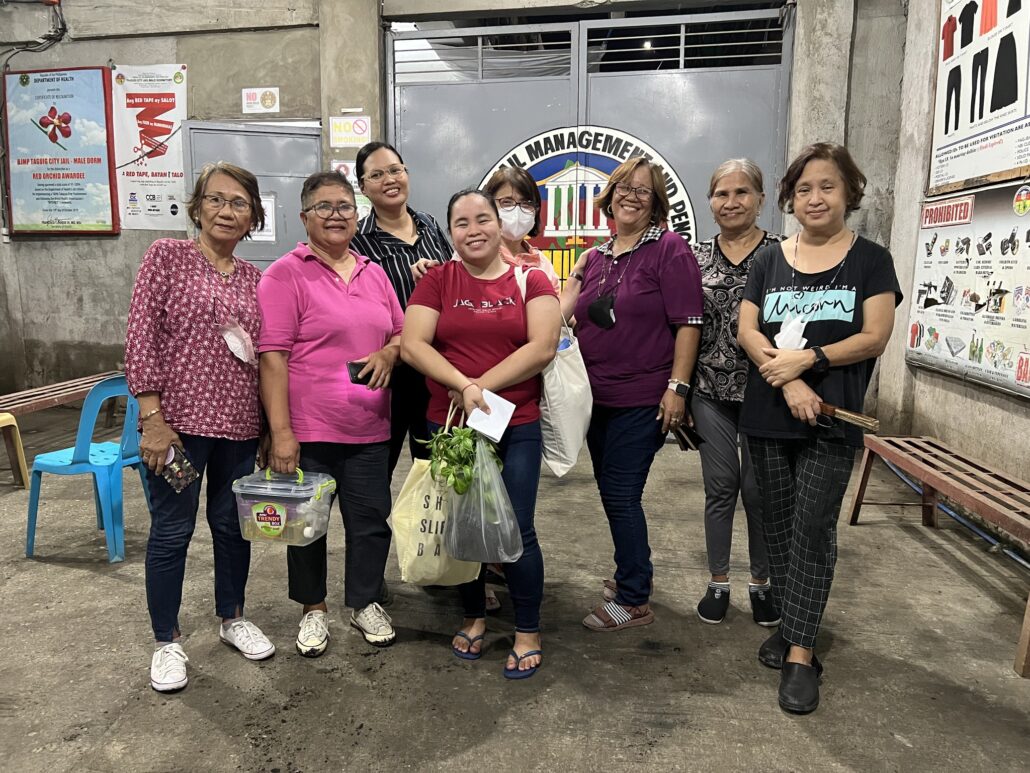Negros political detainees to hold another fast against rights violations
Political prisoners in Negros are set to hold another 24-hour fast on Friday, April 19, to demand thorough and impartial investigations by the Commission on Human Rights (CHR) on reported human rights violations since July 2022.
The families and friends of political prisoners under the Negros Occidental chapter of Kapatid (Kapisanan para sa Pagpapalaya ng mga Detinidong Pulitikal sa Pilipinas) said the fast follows CHR’s revelation last March 9 its efforts to investigate the growing number of human rights and international humanitarian law violations in the island is being stymied by the lack of cooperation by various units of the Armed Forces of the Philippines in Negros.
“It has been 40 days since the said constitutional body made that damning admission yet, until now, the families of victims of these heinous crimes have not been given even the barest minimum attention they deserve from the government,” Kapatid said.
Kapatid added that the investigation should include a follow through on the disappearance of political prisoner Mary Joy Enyong’s daughter Lyngrace Marturillas reported abducted with three others somewhere in Negros’ Hinigaran Highway April 19 of last year.
“It should at least be able to explain why her companion Rogelio Posadas, a National Democratic Front of the Philippines (NDFP) peace consultant, was surfaced dead by the 62nd IB as a casualty in a highly-suspect encounter they claimed to have had with the NPA (New People’s Army) the following day, while the fate of Marturillas and their two habal-habal (motorcycle for-hire) drivers Renald de los Santos and Denald Malen remain in limbo,” Kapatid said.
The political prisoners previously held similar fasts in March 2022, March 2023 and last December on various human rights issues in the island.
They said the rights violations are integral to the Ferdinand Marcos Jr. government’s counter-insurgency drive in the island, adding that the island has seen a sharp rise in incidents that include last year’s June 14 massacre of the Fausto peasant family in Himamaylan City.
The political detainees also cited the September 21 massacre of five New People’s Army (NPA) hors d’ combat and their tricycle driver in Kabankalan City as well as the military’s February 21 aerial bombing operation in Escalante City allegedly in pursuit of armed guerillas.
Political prisoners in Negros island number no less than 128 as of April 1, or about 16% of the country’s current total, Kapatid said.
For peace
Kapatid-Negros Occidental also said the fasting of political prisoners is meant to support the growing call for the Ferdinand Marcos Jr. government to effect the long-awaited resumption of the GRP-NDF formal peace negotiations.
The Marcos Jr. government, the National Democratic Front of the Philippines (NDFP) and the Royal Norwegian Government, Third Party Facilitator to the peace process, made simultaneous announcements last year on their intention to resume negotiations.
“The resumption of the GRP-NDF peace talks is necessary to once again bring to the national attention the necessary pro-people solutions to the fundamental problems plaguing our country, which continue to fuel the 55-year old armed rebellion of the CPP-NPA-NDFP,” Kapatid-Negros Occidental said.
The political prisoners are also calling on the Marcos Jr. government to immediately release from the National Penitentiary 75-year old NDFP peace consultant and former Negrense priest Frank Fernandez they said is suffering from various ailments and need immediate medical attention outside prison
“Fernandez, as well as other sick or elderly political prisoners like 84-year old Gerardo de la Peña (at the National Bilibid Prison), 70-year old Cleofe Lagtapon (at the National Correctional for Women), and 61-year old Corazon Javier (at the Canlaon City Jail), deserve to be released immediately on humanitarian grounds, if only to compensate – albeit partially – for their many years of unjust incarceration,” Kapatid added.
The group also revealed that two sick and elderly political prisoners have died in jail since Marcos Jr. became president.
Marcos Villareal died last December 3 at the Camarines Sur Provincial Jail while 66-year year old Generoso Granado died at the National Bilibid Prison last March 8.
Out of the more than 800 political detainees, at least 95 political detainees are sick while 75 are elderly, human rights groups said. # (Raymund B. Villanueva)




